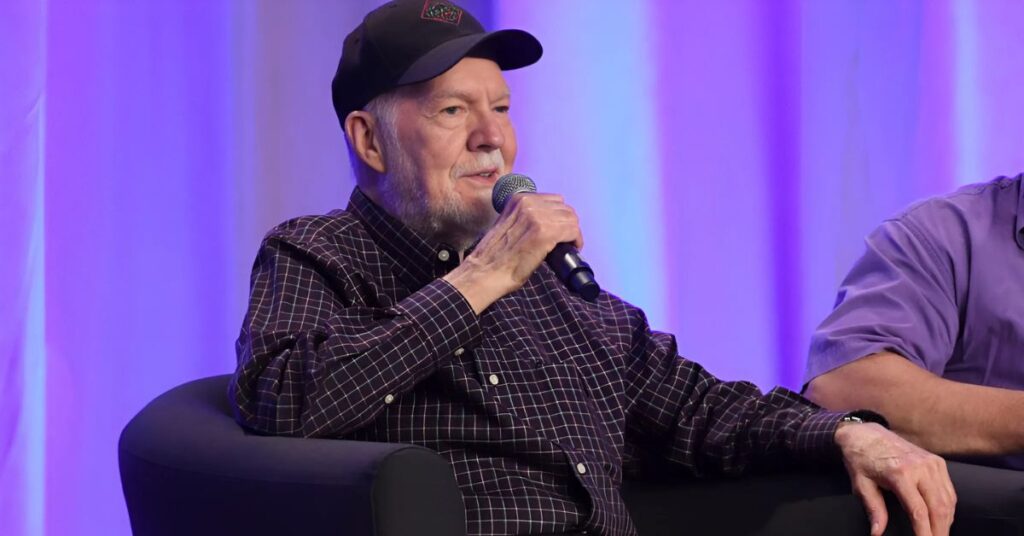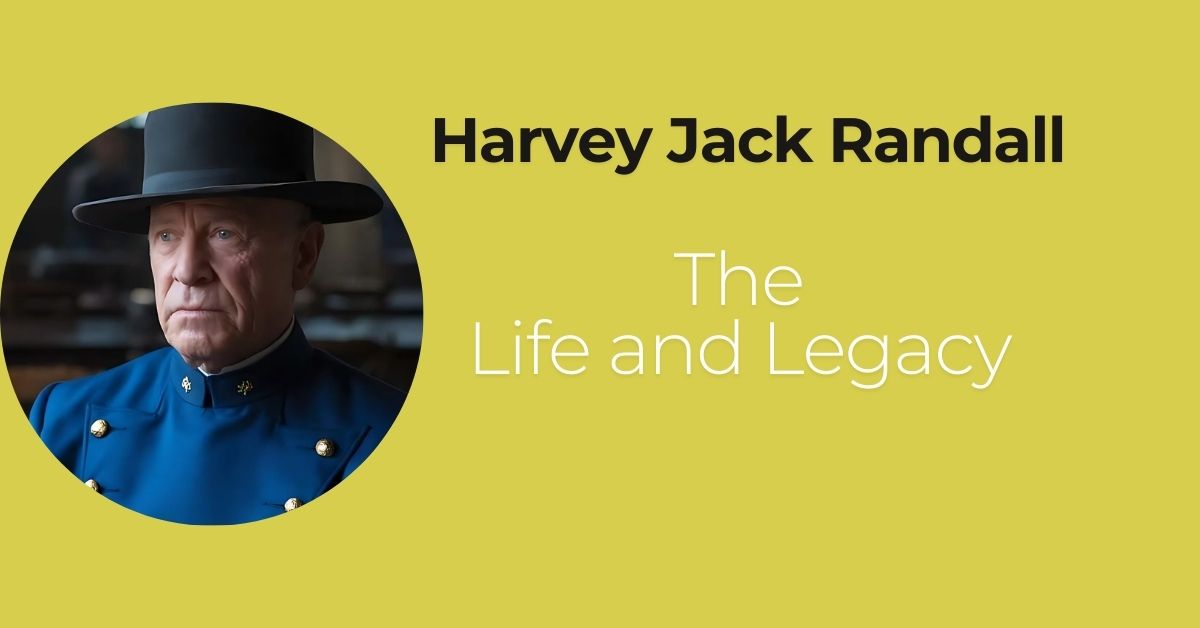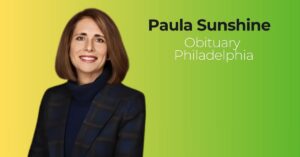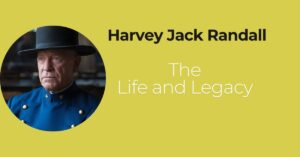Harvey Jack Randall emerged as one of the most influential figures in sustainable development and urban planning during the latter half of the 20th century.
His journey from humble beginnings to becoming a transformational leader exemplifies the power of combining vision with unwavering dedication.
Randall’s multifaceted contributions revolutionized not just his immediate field, but sparked a movement that continues to shape modern community development approaches.
In an era when industrial growth often overlooked environmental and social impacts, Randall dared to challenge conventional wisdom.
His innovative methodology, which seamlessly integrated community needs with sustainable practices, earned him recognition as a pioneer in thoughtful urban development. “We don’t just build structures,” he famously declared, “we craft communities that stand the test of time.”
Early Life and Education
Born in 1935 to working-class parents in Milwaukee’s industrial district, Randall’s early exposure to both urban challenges and family values profoundly shaped his worldview.
His father’s experience in the steel industry and his mother’s role as a librarian created a unique environment that balanced practical knowledge with intellectual curiosity.
This distinctive upbringing would later influence his approach to problem-solving and community development.
During his formative years at Washington High School, Randall’s exceptional abilities in mathematics and debate caught the attention of his teachers.
His literature teacher, in particular, introduced him to works that explored themes of social responsibility and environmental stewardship – concepts that would later become central to his professional philosophy.
Educational Milestones:
| Year | Achievement | Impact |
| 1953 | Northwestern University Scholarship | Full academic funding |
| 1955 | Dean’s Innovation Award | Recognition for urban planning thesis |
| 1957 | Graduate with Honors | Launched career in sustainable development |
Career Beginnings
Fresh from Northwestern University, Randall joined Mitchell & Associates, where his innovative thinking quickly set him apart. His first major project revolutionized Chicago’s warehouse district through an unprecedented approach to stakeholder engagement.
This early success established the foundation for what would become known as the “Randall Method” – a comprehensive framework for sustainable urban development that prioritized community input alongside environmental considerations.
Major Achievements and Contributions

Randall’s ascent to industry leadership in the 1960s marked a transformative period in urban development. His groundbreaking Chicago River Development Plan of 1965 established new paradigms for waterfront rehabilitation, earning widespread acclaim for its innovative integration of environmental preservation with urban functionality. The project demonstrated Randall’s signature ability to harmonize commercial interests with community needs.
Notable Achievements:
| Year | Project/Initiative | Impact |
| 1965 | Chicago River Development Plan | Revolutionized urban waterfront design |
| 1968 | Burnham Award | Recognition for sustainable architecture |
| 1972 | Green Building Initiative | Set industry standards for eco-friendly construction |
His Integrated Community Development Model (ICDM) became a cornerstone of modern urban planning. The model emphasized three key principles:
- Environmental Sustainability
- Social Equity
- Economic Viability
“Sustainable development isn’t just about preserving resources,” Randall often emphasized, “it’s about creating lasting value for communities while protecting our environment for future generations.”
Challenges and Obstacles
The 1970s presented unprecedented challenges that tested Randall’s resolve. The global oil crisis threatened to derail his sustainability initiatives, while skeptics questioned the economic viability of his environmentally conscious approaches.
Traditional developers, accustomed to prioritizing short-term profits, initially resisted his community-first methodology.
Personal tragedy struck in 1975 when he lost his wife Helen, leaving him to raise three children while managing his expanding professional responsibilities.
Rather than retreating, Randall channeled his grief into more vigorous community engagement, establishing support programs that would later evolve into cornerstone initiatives of the Randall Foundation.
Philosophy and Influence
Randall’s guiding principle, “Build for tomorrow, plan for forever,” encapsulated his visionary approach to development. His philosophy centered on four core tenets:
- Sustainable Innovation
- Integration of renewable resources
- Long-term environmental impact assessment
- Adaptive reuse strategies
- Community Engagement
- Inclusive planning processes
- Stakeholder collaboration
- Local workforce development
- Educational Empowerment
- Professional mentorship programs
- Academic partnerships
- Public awareness initiatives
- Ethical Leadership
- Transparency in operations
- Social responsibility
- Environmental stewardship
Philosophy and Influence
Randall’s philosophical approach centered on lifelong learning principles and social responsibility in leadership.
His belief in collaborative innovation transformed how organizations approached community development. He established several key tenets that continue to influence modern leadership:
- Integration of academic excellence with practical application
- Emphasis on sustainable development
- Focus on mentorship and knowledge sharing
- Commitment to ethical decision-making
“Leadership without service is just authority,” became one of his most quoted insights, reflecting his dedication to impact-driven strategies.
Impact on the Community and Industry
The ripple effects of Randall’s work extended far beyond his immediate projects. His philanthropic efforts created lasting change through:
- Educational empowerment programs benefiting thousands of students
- Community health initiatives that revolutionized local healthcare access
- Professional development workshops that trained future industry leaders
- Environmental sustainability projects that set new standards
His work with educational institutions established frameworks for industry-academia collaboration that continue to influence modern practices.
Legacy and Recognition
Harvey Jack Randall’s enduring legacy is reflected in the numerous initiatives and awards that bear his name. The annual “Harvey Jack Randall Community Impact Award” recognizes individuals who exemplify his commitment to community service and innovation. His influence continues through:
- The Randall Foundation’s ongoing community development work
- Academic programs incorporating his methodologies
- Industry standards based on his ethical practices framework
- Mentorship programs inspired by his leadership approach
Read More: The Life and Legacy of Alina Page
Conclusion and Reflections
The story of Harvey Jack Randall exemplifies how thoughtful analysis combined with dedication to social responsibility can create lasting change. His journey from a modest neighborhood to becoming a transformative figure in his field demonstrates the power of principled leadership and unwavering commitment to community service.
Today, his legacy lives on through countless initiatives and individuals who continue to build upon his foundational work. As modern leaders face new challenges, Randall’s emphasis on sustainable development, ethical practices, and community engagement remains more relevant than ever.
“Success is measured not in personal achievements, but in the positive change we create for others,” he once said, encapsulating a philosophy that continues to inspire new generations of leaders and innovators.

Hello, I’m Liam, an author at [Swaggerdiary.com], where I delve into diverse topics spanning Tech, Lifestyle, and Entertainment. My writing combines in-depth research with a unique voice, offering readers clear, engaging insights on the latest trends. Whether it’s simplifying complex ideas or delivering fresh perspectives, my goal is to keep you informed and entertained. Stay tuned for timely updates and articles that keep you ahead of the curve.








